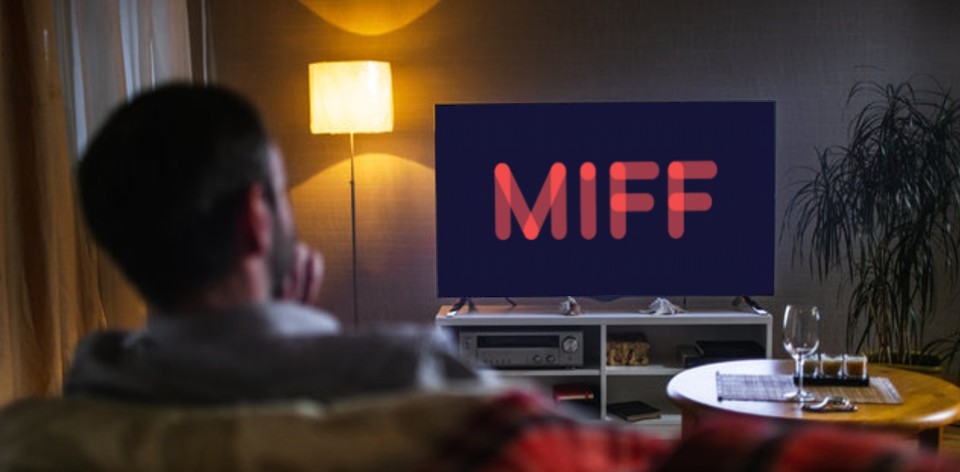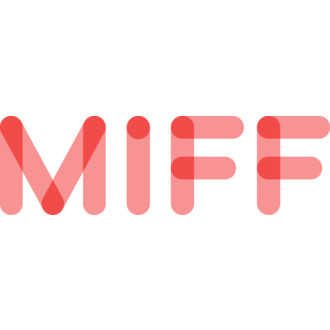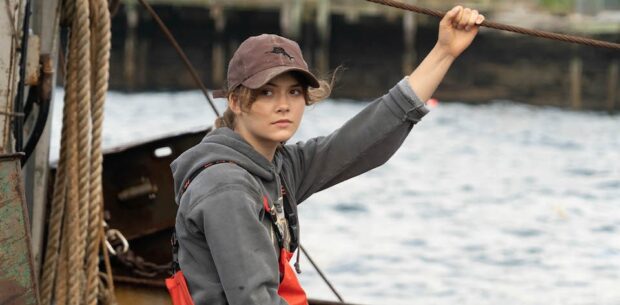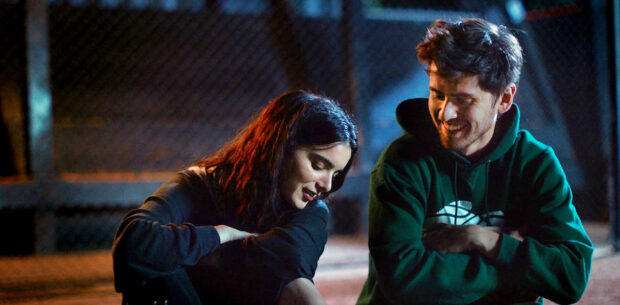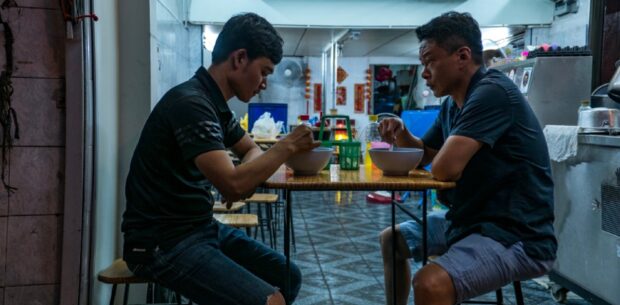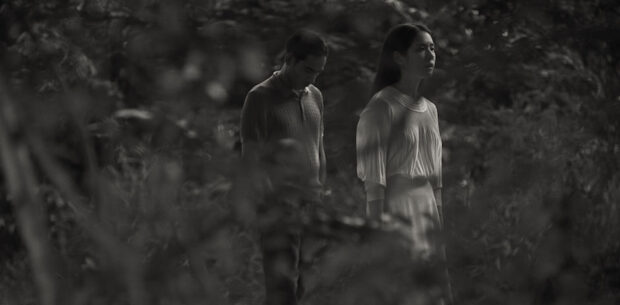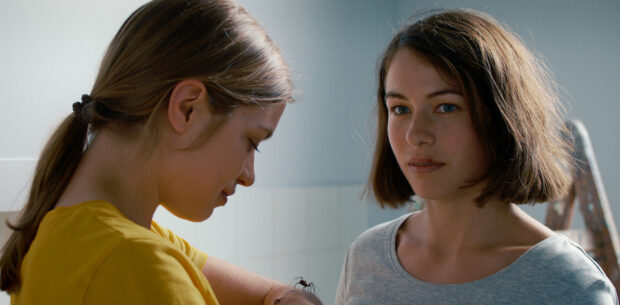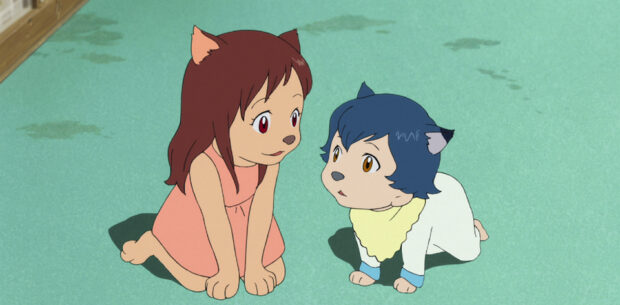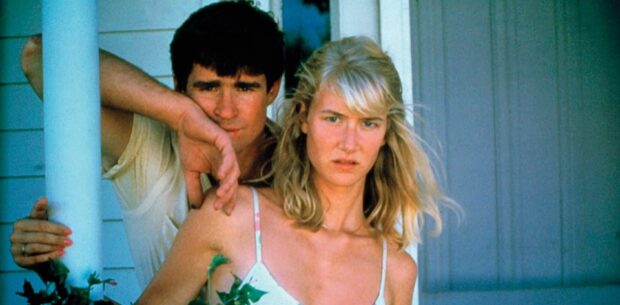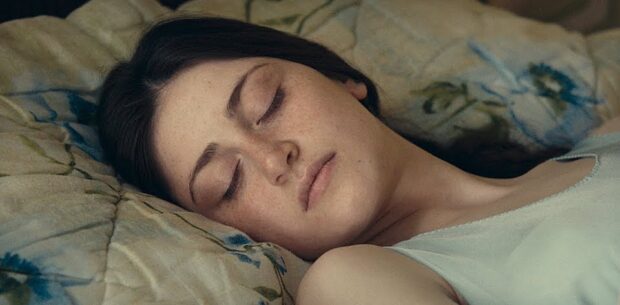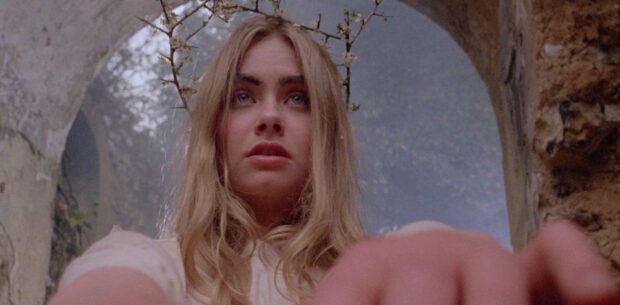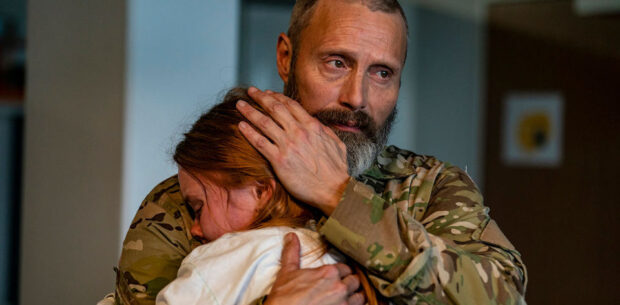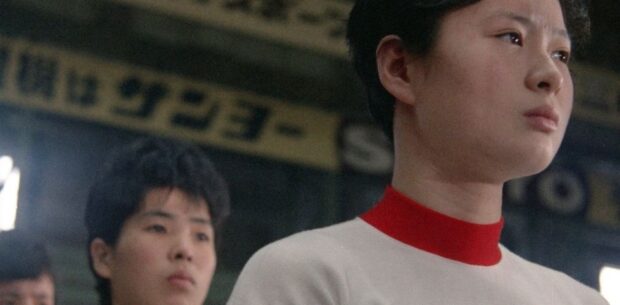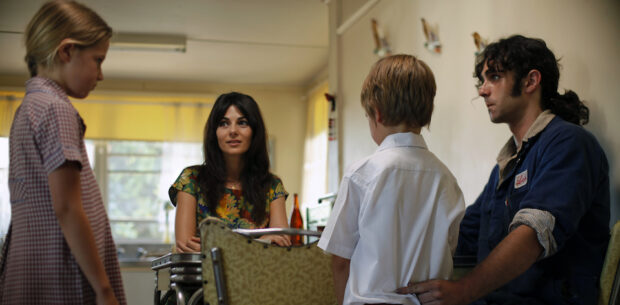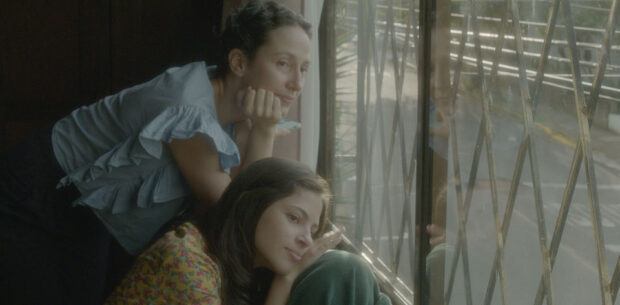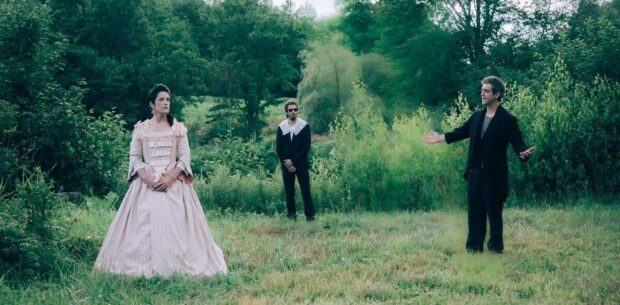You know what they say about best laid plans, right? Flexibility seemed to be the key word for the Melbourne International Film Festival this year.
Following an announcement that MIFF would swap the online and in-cinema portions of the festival around this year, ongoing restrictions meant that MIFF was an online-only festival for the second year running. Yet film found a way.
Despite having to hold back on highly anticipated titles like Titane, Zola and Annette, the online festival delivered an impressive range of highlights, including the Sundance-winning CODA, the world premiere of a some Australian shorts and features, competitive table-setting documentary SET! and more folk horror than you’ll ever need in WOODLANDS DARK AND DAYS BEWITCHED.
We’d like to take the opportunity to thank MIFF for not only making so many films and screeners available to us, but generally for being willing to pivot and continuing to run the festival online during a difficult period for many Australians.
So, without beating around the bush any further, here’s a look at some of the excellent films we saw at the 69th edition of MIFF this year. You can also see the rest of our coverage at our MIFF 2021 festival hub.
CODA
As the opening night film to a major film festival, albeit the digital leg of that festival, one tends to expect this to be a feel-good flick full of all the usual tropes. Yes, there’s all of this in spades. What you may not expect is how deeply touching it also is, and there’s at least one tender moment between father and daughter that had me sniffling into my notes. A charmer that’s going to wind up on a lot of lists this year. Read the full review right here on The Reel Bits.
Language Lessons
Natalie Morales’ film — which debuted in Berlin and also played at SXSW — may have been the biggest surprise of the season. It is essentially structured around a series of video and audio calls between Spanish teacher Cariña (Morales), who has been secretly hired by Will to give lessons to his husband Adam (Duplass). When tragedy strikes, they continue their conversations. We all need to find connection, especially over the last year, and at its corazón this is what this charming spin on the ‘lockdown film’ does. While it’s not the first Zoom/phone based drama, and it certainly won’t be the last, it might be the most heartfelt. Filled with genuine surprises and emotional turns, this is one video call where you won’t want to have a sneaky browser open. Read the full review.
Set!
The world of competitive table setting is not only intriguing, bizarre and as mad as you’d think, but filled with the kinds of personalities you’d not expect outside of parody. Perhaps the only problem is that this film got there before Christopher Guest had a chance. Read our full review.
Freshman Year
As someone who’s always felt he didn’t “do college right” (or in my case, “do uni right”), this one hit close to home. I thought this was going for a Before Sunrise vibe to start with, but it turned out to be much more complex and layered than that. Comedy, while occasionally laugh-out-loud, is more of grim recognition. As an alternative to endless college party shenanigans, a rare gem with some actual emotions. Originally released in the US under the title Shithouse.
Hopper/Welles
Oh, you tricksy fellows, Messieurs Hopper and Welles. In 1970, Hopper is making The Last Movie and Welles (or should we say ‘Jake’) is putting together the (initially) ill-fated The Other Side of the Wind. It’s either a rare insight into two pioneer filmmakers having an unguarded conversation, an elaborate experiment in fakery or simply a package of raw outtakes cobbled together as a film. Whatever the case, it’s genius no matter how you look at it. Read our full review.
Days
Filled with characteristic long takes and intimate moments, Tsai Ming-liang’s film is a measured and meditative exploration of routine and transition. The bittersweet ending does not offer any conclusions, and nor would one expect them. Yet it does indicate a progression, a departure and a kind of handover. Whatever it was that Kang has been carrying around is for the much younger Non now, which is where Tsai leaves us in contemplation. Read the full review.
The Edge of Daybreak
A hypnotic and meditative journey that uses four decades of political turmoil in Thailand as the backdrop for a more familial tragedy in this strikingly visually led debut. Whether you err on the side of hypnotic or tedious, Sakpisit’s film is unmistakably present. Like countryman Phuttiphong Aroonpheng (Manta Ray) or India’s Anshul Chauhan (Kontora), Sakpisit demonstrates an innate knack for bringing the inner world to visual life. Read full review.
The Girl and the Spider
If you have ever moved house, you can confirm that it is exactly as tense as this. In this German film, the Zürcher brothers have bottled the uncertainty of moving house and magnified it several times in a psychological drama. As Lisa (Liliane Amuat) moves out of the apartment she has shared with Mara (Henriette Confurius), we witness their activities over the course of two days and a night. People come and go, past and current relationships are exposed, and everyone feels like they are going through some kind of ritualised play. Read the full review.
Wolf Children
Just because it’s now almost a decade old, it doesn’t mean that it isn’t a perfect addition to a 2021 film festival. In that time, director Mamoru Hosoda has earned an even bigger legion of fans. His fifth feature as director, a follow-up to Summer Wars, proved that he deserved to be spoken of in the same terms as the (then) unstoppable Studio Ghibli. Given that he’s since delivered films like The Boy and the Beast and Mirai, it’s a reputation that he’s continued to maintain. Read our 2012 review.
Smooth Talk
A remarkable 1985 film that MIFF played as part of their retro program. Joyce Chopra’s narrative feature debut (following half a dozen documentaries or so) is an amazing construct, following the sexual awakening of Connie Wyatt (Laura Dern) in the Northern Californian suburbs. At once an intimate and intense coming-of-age portrait of youth and sexuality and — thanks to the phenomenal and unnerving ambiguity of the final scenes (based on the even darker Joyce Carol Oates short story) — a timely examination of male toxicity as well.
What Do We See When We Look at The Sky?
Arriving at MIFF following its debut Berlinale this year, Alexandre Koberidze’s film takes the magical realism of two lovers cursed to change appearance each morning. It’s a very measured, almost dreamlike pace that Koberidze uses to take us on this journey, one that exposes the everyday wonders of a town in Georgia. A real stop and smell the roses kind of film.
Woodlands Dark and Days Bewitched: A History of Folk Horror
With over 100 films covered and 50 interviews, Kier-La Janisse’s comprehensive documentary may be the definitive word on folk horror. Taking just over three hours, Janisse guides us through the origins of folk horror films, from the more common British folk horror of the 60s and 70s through to more recent examples from around the world. Read our full review.
Come Back Anytime
In Chiyoda, the political heart of Tokyo, there is an ramen shop named Bizentei. Run by self-taught ramen master Masamoto Ueda, he only serves three kind of ramen — and has been doing it for more than forty years. Like a hot bowl of ramen, this is one of those stories that just makes you feel good inside. A charming and engaging study of a passionate man and his ramen restaurant, as told by his friends, family and supporters. Read our full review — then order yourself a bowl of ramen.
Riders of Justice
A solid revenge film with a socio-political twist, with Anders Thomas Jensen bringing punchy action and dark comedy in equal measure. Mads Mikkelsen goes back to his roots in full elder Neeson mode, headling a group of characters trying to find meaning in a world of chaos. It all culminates in a spray of action that one would expect from a modern thriller, especially one filled with men on the north side of 50. Of course, if none of that convinces you, I’ll just throw one last thing out there: Mads Mikkelsen in a Christmas sweater. You’re welcome. Read our full review.
The Witches of the Orient (2021)
A remarkable story about an equally remarkable team of Japanese volleyball players and their unbeaten lead-up to their victory at the 1964 Tokyo Olympics. Formed in the 1950s, the factory team took to the world stage with victories at the FIVB Volleyball Women’s World Championship. They became known for their trademark kaiten reshību, a method of rotating on the court and receiving the ball while rolling. The team’s 258 consecutive victories ended in 1966, but it remains a standing record. Read the full review.
Little Tornadoes
Co-written by The Slap author Christos Tsiolkas, this MIFF Premiere Fund-produced Australian film from director Aaron Wilson is a slow-burner. It follows the introverted Leo (Mark Leonard Winter) after his wife leaves him in a small town with their two children. When his Italian friend offers his sister Maria (Silvia Colloca) as a temporary homemaker, so begins a difficult process of rebuilding. A quiet period piece that’s almost lyrical in its use of voiceovers.
Poly Styrene: I Am a Cliché
We lost the lead singer of seminal punk rock band X-Ray Spex back in 2011 to breast cancer. Yet her daughter has spent a few years travelling across the globe to get a better understanding of her mother and her career, engaging with archives and a host of celebrities. Filled with amazing music and a great story, as a documentary it left a lot to be desired. Audio recordings floated over stock footage, or imagery of daughter/director Celeste Bell leafing through a copy of her own book while sat in a blank void. While it was very consciously avoiding talking heads, the result was a lack of energy and a general listlessness. In fact, it was hard to get a bead on any type of chronology. It would have been great to hear a bit more of the music too.
Aurora
Paz Fábrega’s film, which premiered at the International Film Festival Rotterdam (IFFR) earlier this year, is about an unwanted pregnancy. The 40-something Luisa gives inspirational creative arts workshops to students, and one day finds Julia in the school bathrooms after she’s discovered she has an unexpected pregnancy. Luisa begins to play several roles, and we as the audience question some of the altruism of her motives.
Freakscene: The Story of Dinosaur Jr.
Despite being a man of a certain age, and a fan of many of their contemporaries, I have to admit that I didn’t know a lot about Dinosaur Jr. going in. I still don’t know a lot coming out. A collection of scenes and interviews with very little connective glue or context, and giant leaps through the decades. If you’re a super fan, you’ll probably dig this but there’s just not enough here for an entry point.
Social Hygiene
This did make me chuckle a few times in the first ten minutes of so, but this comedy of manners – filmed entirely in a series of fields with people standing at safe physical distances – overstays its welcome as a feature. Even a 75 minute one. The pandemic has inspired some marvellously inventive films this festival (not least of which are Language Lessons and Bad Luck Banging or Loony Porn). This is not one of them. The credits set to ‘Kiss Me Until My Lips Fall Off’ are kind of rad though.

